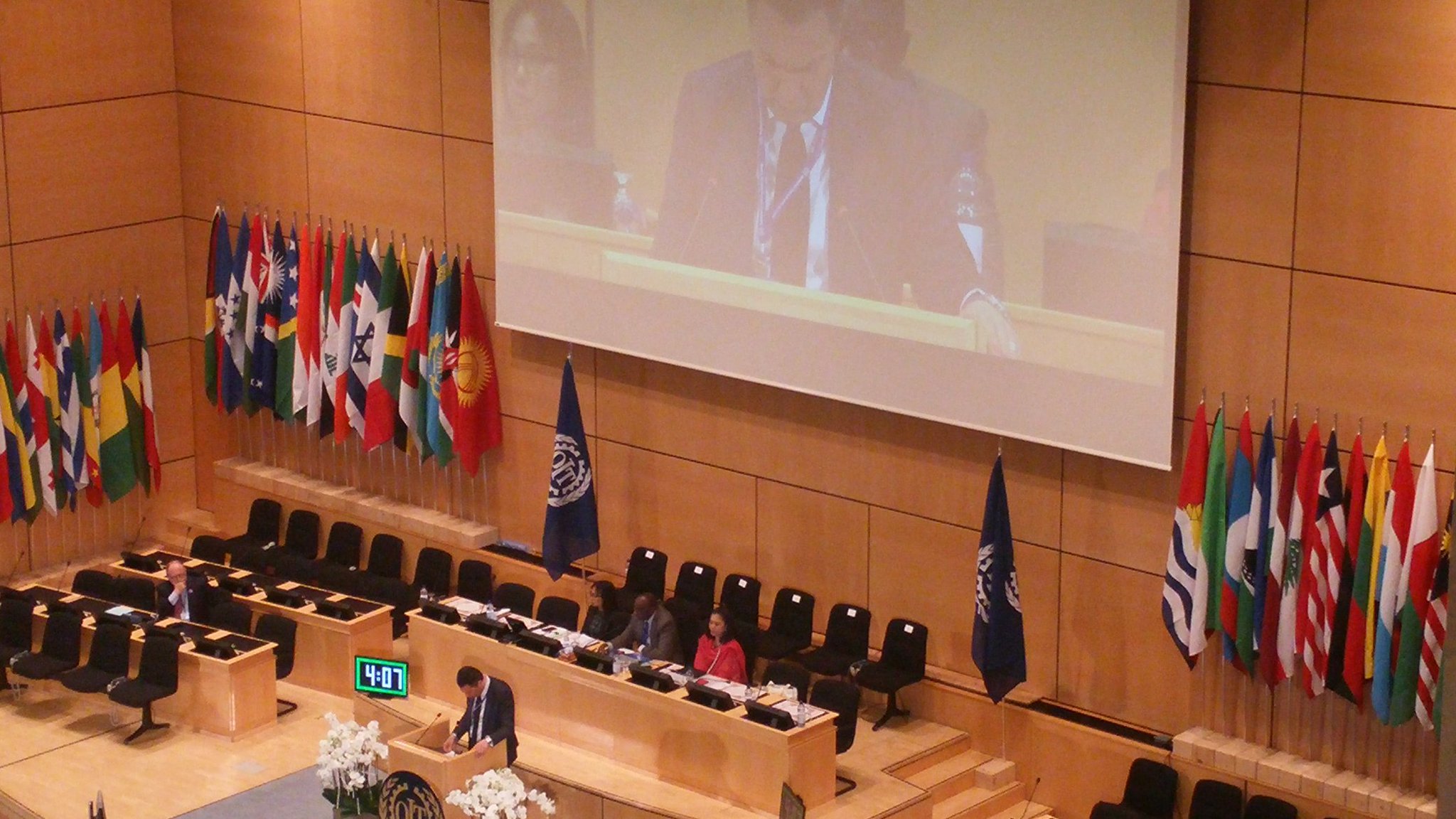
Luca Visentini – speech for ILO International Labour Conference 3 June 2016
Check against delivery
We, the European trade union movement, welcome the UN’s 2030 Agenda for Sustainable Development and the ILO’s ‘End to Poverty’ Initiative.
We welcome the ILO initiative on the Future of Work and the ILO action on Supply Chains.
End poverty & hunger, combat inequality, build just and inclusive societies, gender equality, the protection of our planet’s natural resources.
Build inclusive growth, shared prosperity and decent work for all, especially for the less protected and included ones, manage fair transition to green and digital economy, fight against social and wage dumping, and labour exploitation.
These are ambitions that are at the heart, and origin, of the trade union movement.
We have long argued and fought for these goals.
Trade unions will support the UN and the ILO in working to achieve all these objectives.
But in 2016, if I look around Europe, what do I see? I see the opposite of what our Governments agreed at the UN. I see:
- No real improvement in the economy, no sustainable growth and job creation, despite of all the promises.
- High unemployment everywhere, and youth unemployment at over 40% in some EU countries.
- More and more part-time, temporary, precarious contracts and bogus self-employment, with low wages, no labour protection, no perspective for better living conditions.
- A vast gap between investment needs and the willingness of Governments and businesses to invest.
- Attacks on trade unions, on the right to strike, on collective bargaining and social dialogue.
- Walls being built to exclude those fleeing from war.
- The EU paying Turkey to keep refugees out of Europe.
- I see growing cynicism about politicians – I see populism and xenophobia.
The European Union is itself at risk, at a crossroads, staring at disintegration, if integration and solidarity continue to be neglected.
That EU model of cooperation, between countries for centuries in conflict, is at risk.
The European Union’s social market economy and social model – with social rights balancing economic freedoms – represented hope for workers across the world.
It is now being downgraded by austerity, public service and benefit cuts, and so-called labour market structural reforms.
Europe needs to take a new path. We were promised a new start by European Commission President Juncker, but Governments are cooperating less, not more.
We need a renovated New Deal – for Europe, and globally.
- To stop austerity and cuts, to invest in sustainable growth and quality jobs.
- To achieve a general pay rise for workers – to stimulate economic demand, boost recovery and tackle inequality.
- To restore collective bargaining, social dialogue, and the welfare state.
Europe’s most successful economies have strong trade unions, widespread collective bargaining, effective social dialogue. Strong trade unions mean less inequality, but also more productivity and competitiveness.
Today we see Europe acting with an alarming lack of humanity towards refugees and migrants, but also towards its own workers and citizens.
Europe must:
- respect its moral and legal obligations
- accept and integrate refugees into society and into work
- ensure decent public services for refugees and host communities
- enforce equal pay for equal work for all
- combat dumping and exploitation
I am painting a depressing picture, but I am optimistic by nature.
Trade unions build hope for workers. Trade unions are spreading a new narrative for economy and society. Trade unions are ready to negotiate for an alternative, because there is an alternative.
Citizens have stepped in where governments have failed. Many NGOs and some politicians want a more human and cohesive society.
The European Commission, and international institutions, including the ILO, know that change is needed.
Europe played a positive role in the global climate negotiations. It needs to do the same with the refugee situation, to create the conditions for harmony in Europe, and peace in Syria, the Middle East, and North and West Africa.
Europe, its governments and EU institutions, need to join forces with trade unions to become genuine and active supporters of the excellent 2030 agenda.
But Europe should also change its economic and social policies, and take a lead for a change at global level.
Europe must take a lead for a Global New Deal.
The trade unions, starting with Europe and the Americas, are ready to push for that and to contribute with their own proposals.
